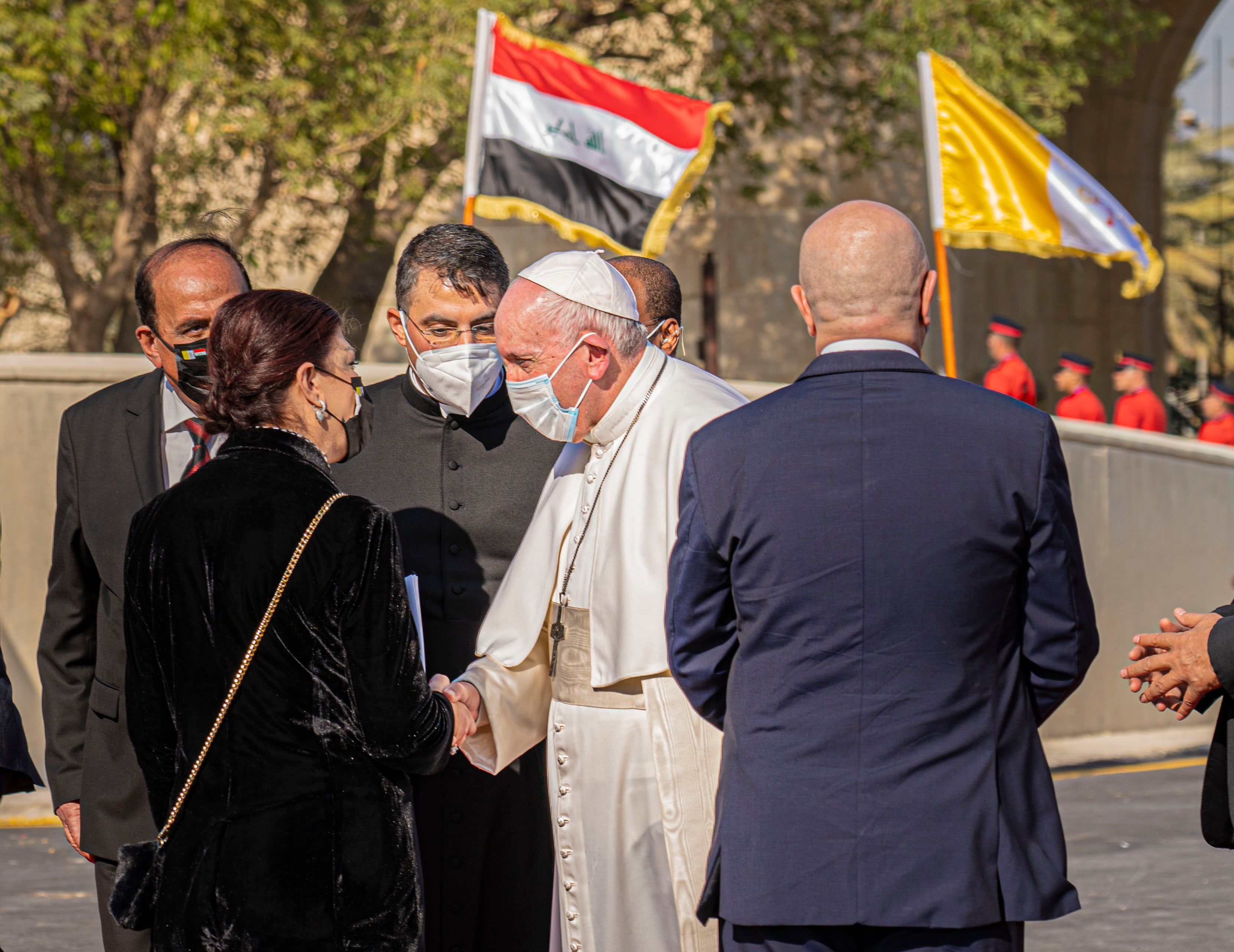Mea Culpa: mishearings and broken silences
Questions of style and usage in last week’s Independent, as deciphered by John Rentoul


In the old days, newspaper reports were often dictated over the phone to copytakers, and hilarious results ensued as misheard words made their way into print. That doesn’t happen so much now that journalists type their own copy and send it via email, or put it directly into the office system online. But the mondegreen (named after the mishearing of the phrase “laid him on the green” in the ballad “The Bonny Earl of Murray”) is making a comeback. Journalists increasingly use transcription programmes, which turn audio recordings into the written word, but which are only patchily reliable.
John Schluter, a reader, wondered if this was what had happened in the early version of the first paragraph of our report from the Pope’s visit to Iraq: “Clad in white, Pope Francis sat on a gleaming thrown in the Iraqi city of Mosul, dwarfed by slabs of concrete that dangled limply from the metal sinews of bombed out buildings.”
In fact, the artificial intelligence in most transcription programmes is sophisticated enough to work out the right spelling of “throne” from the context, so I think that must have been simple human error.
Not silent enough: The Independent has traditionally tried to be measured in its coverage of royalty, and the same ought to apply to TV royalty. So this headline seemed a little breathless: “Piers Morgan breaks silence after storming off Good Morning Britain set like a ‘snowflake’.” He had walked out of the TV studio at 6.38am that day, but had returned before the news at 7, as the story reported, so his silence lasted about 20 minutes. I don’t know if he mentioned his walk-out on the programme, but we appeared to be reporting that he had “broken his silence” on that subject, when he explained, “I was annoyed, went for a little cool-down, and came back to finish the discussion,” on Twitter at 8.26am. So even then, he “broke his silence” about his own flounce after a mere 108 minutes.
Crisis situation: In our report of the prime minister approving the building of a “situation centre”, a £9m command bunker in the basement of the cabinet office behind Downing Street, we came up with an unusual plural. We said the bunker would be for use “during such emergencies as terrorist strikes and crisis’ including pandemics”. Thanks to Philip Nalpanis for pointing this out.
You can imagine how it happened: knowing there is something strange about the plural of crisis, the writer thought about adding an “s” but decided that would require an apostrophe for a word already ending in “s”. Anyway, it was changed to “crises” and no harm done. It’s Greek, and in Greek it means “decision”, which later came to mean, in medical Latin, the turning point of a disease, and thus a decisive moment. Funny thing, language.
Not again: Two readers were surprised by a headline last week that read: “Woman convicted of murdering partner for a second time.” As they pointed out, that makes it seem as if she killed the same person twice, when what we meant was: “Woman convicted for the second time of murdering her partner.”
Paradigmatic: Finally, thanks to Richard Parry for pointing out a picture caption in the Daily Edition on a photo of some people in the back of an ambulance: “Pandemics treat a patient diagnosed with coronavirus.” We meant “paramedics”, which is the kind of semi-anagrammatical error that strikes fear into the heart of an editor, because the brain automatically makes it make sense.

Join our commenting forum
Join thought-provoking conversations, follow other Independent readers and see their replies
Comments